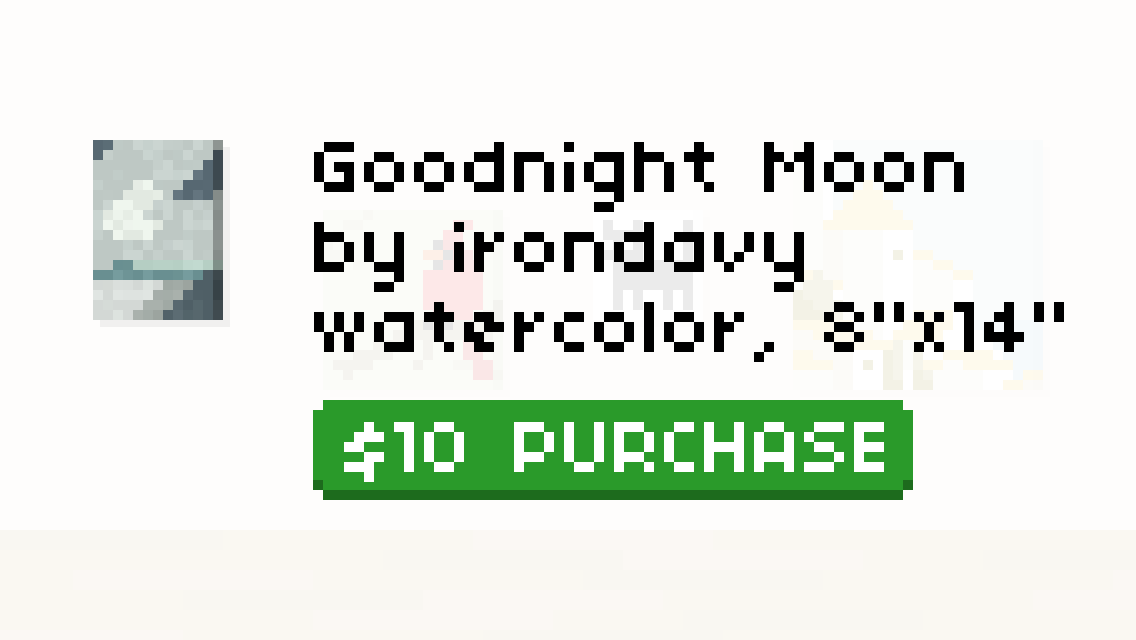Gintrigue
Card game meant to be played among a group of friends over the course of a full day, presumably while something else (e.g. work) is happening. Rules:
- In the morning, a standard deck of playing cards is divided among the players.
- Players can trade cards all day.
- At the end of the day, everyone declares their allegiance to a player.
- Score hands according to standard gin / rummy rules, with allied players counting their cards as a single hand.
Probably need more rules to balance against everyone ganging up against another player, or preventing everyone from allying with each other accidentally, or hand size messing things up.
Micro-syllabi
A blog where each post is a syllabus for a different subject, especially a genre within some medium. Each item in the syllabus corresponds to a standard concept (below). Some syllabi interlock via the parent/child relationships, so ideally these could be laid out in some kind of tessellating shape.
| The Parent | The definitive work from a genre that is considered to have led to the chosen genre. |
| The Original | The work that is generally recognized to have set the stage for the development of the chosen genre. |
| The Definitive | The work that is considered the definitive instantiation of the genre. |
| The Accessible | The best work that is palatable to someone unfamiliar with the genre. |
| The Inaccessible | The best work that is only appreciated by hardcore fans of the genre. |
| The Child | The definitive work from a genre that is considered to have spawned from the chosen genre. |
Just Here
“Just Here” is a short-session iPhone game you play with a group of friends, each on their own phone but typically in the same room. It’s about coordination in the midst of utter confusion. It’s like the Labyrinth meets Spaceteam but as a text adventure.
A session begins with everyone scattered in various rooms and floors in a multi-level dungeon. The goal is to make to the top level of the dungeon and escape together. The dungeon has great acoustics so you can hear each other shouting, but the echos are so severe you can’t tell the direction the voices are coming from (this is my thematic explanation for the ability to speak out loud IRL).
The game output is entirely text-based. Input is given by tapping on various contextual controls: movement in NSWE directions or up and down as appropriate, and the ability to generically “Interact” with any manipulable object in the room.
As the player, you will be given a description of the room you are in, including a list of exits, objects in the room, and the names of other players in the same room as you. If a player enters or exits the room you are in, you will be notified in real time, including the direction they came/went. If a player moves in a nearby room, you will be be told of the sound of their footsteps but no direction will be given.
It will be typical to get completely lost. Landmarks and environmental clues might help you or might just be red herrings. Different rooms might have identical descriptions. You will not have access to previous room descriptions and there is no in-game map. Drawing a map in real time is acceptable and possibly encouraged.
There will be various paths that require multiple people to be in the same room as each other to open up, as well as paths that require players to be in separate rooms to activate switches at the same time to open a single door elsewhere. Other forces might help put pressure on the players to regularly split up like rooms that rotate at random times, paths that get blocked, doors that shut permanently, players getting stuck and needing rescue, and other surprises.
A session might benefit from a time limit that is short enough that players feel the pressure to rush through the game, further increasing the odds they get lost or make a mistake.
Things people will hopefully say while playing:
- "I think we’re going in circles. Weren’t we... JUST HERE?"
- "Where the hell are you? I’ve looked everywhere."
- "I’m trapped in a room with exits to the north and south and moss on the eastern wall."
- "Wait, I know where you are, I’ll be right there."
- "Wait, are we even on the same floor?"
- "I think we should split up and cover more ground to find the exit."
- "Okay, flip your switch on three."
- "Didn’t this room have an exit to the east before? Fuck."
Like Picross but with linguistic clues like crossword instead of numbers
Maybe drawn from lines, instead of blocks? I don't know, this idea doesn't make much sense.
Artiste
Touch-based game about the life of an artist. An experiment with blurring the lines between game and authoring tool (see also: Minecraft). There are two modes: Artist and Collector. On the artist side, you begin broke and struggling, only able to afford to use pencils for your work. You draw in the game via pixel art, but you’re constrained in terms of canvas size and color (i.e. pencil on paper in the beginning.)

You can list your work for sale, and if you earn enough in-game currency, you can buy new art supplies and bigger canvases. Colored pencils, watercolor, acrylic, etc.

On the collector side, you can browse galleries of work produced by players from the artist side.

Of course, you can buy the ones you like.

Each work is unique in the shared world of the game. Only one collector can own a given work. And when you buy a piece, you’re paying for it with real money, and you actually receive a real print of that work in the media you chose:
